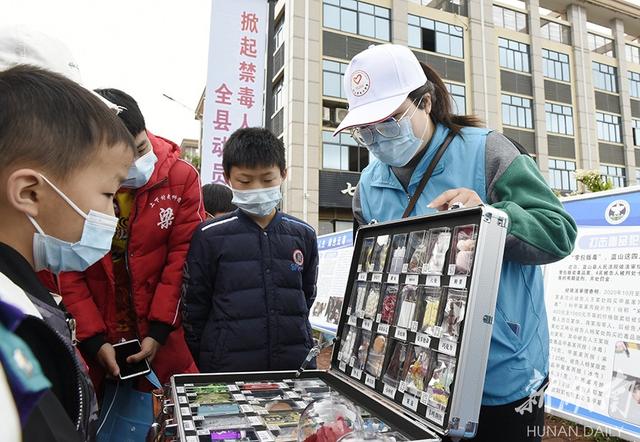一、重点短语1. a lot of/lots of大量;许多,今天小编就来聊一聊关于译林版七年级下册英语unit2笔记 人教版七年级英语下课堂笔记unit2?接下来我们就一起去研究一下吧!

译林版七年级下册英语unit2笔记 人教版七年级英语下课堂笔记unit2
一、重点短语
1. a lot of/lots of大量;许多
2. after (eating) breakfast(吃过)早饭后
3. at a quarter past three in the afternoon
在下午三点一刻
4. at a quarter to ten in the evening
在晚上9:45
5. at half past six in the morning
在早上6:30
6. at night在晚上
7. be good for health 对健康有益
8. be late for school 上学迟到
9. be late for work上班迟到
10. brush one's teeth刷牙
11. clean one's room打扫房间
12. do one's homework做作业
13. have breakfast 吃早饭
14. have lunch午饭
15. have dinner 晚饭
16. either... or ...要么……要么……
17. from Monday to Friday从周一到周五
18. get dressed穿上衣服
19. get home from school从学校回到家
20. get home from work 从学校回到家
21. get to school到校
22. get up early起得早
23. go to bed late 晚睡
24. half an hour半小时
25. have a healthy life有健康的生活
26. have an interesting job有一份有趣的工作
27. take a walk散步
28. on school nights在上学的晚上
29. take a shower洗淋浴
30. work at a radio station在电台工
二、重点句型
1.—What time/When do you usually exercise?
你通常什么时候锻炼?
—I usually exercise at five o'clock.
我通常在5点锻炼。
2.—What time/When does he go to work?
他什么时候去上班?
—He always goes to work at eight o'clock.
他总是在8点去上班。
3.That's a funny time for breakfast!
多么滑稽的早餐时间啊!
4.—When do students usually eat dinner?
学生们通常什么时候吃晚饭?
—They usually eat dinner at a quarter to seven in the evening.
他们通常在晚上6:45吃晚饭。
5.I don't have much time for breakfast, so I usually eat very quickly.
我没有太多时间吃早饭,所以我通常吃得很快。
6.In the evening, I either watch TV or play computer games.
在晚上,我或者看电视或者玩电脑游戏。
7.She knows it's not good for her, but it tastes good!
她知道这对她来说没有好处,但是它尝起来是美味的!
8.He/She is never late for the first class in the morning.
他/她从来不在上午第一节课迟到。
9.After school, I sometimes play basketball for half an hour.
放学后,我有时打半个小时的篮球。
三、词法精选
1.get to school 到学校
get意为“到达”,后面跟名词时要加to,跟副词不加to。
如:get home from school 从学校回到家, get to my home 到达我家,get here 到这儿, get there到那儿。
arrive at 到达小地方, arrive in 到达城镇等大地方
reach 地点 到达某地
arrive 为不及物动词,可单独使用。
如:When you arrive, pleas call me.
2.I want to be healthy.我想要变得健康。
healthy意为“健康的”,修饰名词作定语或作表语,反义词是unhealthy,名词是health。如:
①I have a very healthy life.我拥有十分健康的生活。
②We must do exercise to keep healthy.我们必须锻炼身体来保持健康。
③Doing morning exercises is good for our health. 做早操对我们的健康有好处。
四、句法精析
1.—What time do you usually get up?=When do you usually get up?
你通常什么时候起床?
—I usually get up at six thirty.
我通常六点半起床。
usually为频率副词,意为“通常”,一般放在动词前面或者助动词之后。
其他的频率副词还有:always总是;often经常;sometimes有时候;never从不。
2.That's a funny time for breakfast.
那个时间吃早饭真有意思。
相当于What a funny time for breakfast!
3.In the evening, I either watch TV or play computer games.
晚上,我要么看电视,要么玩电脑游戏。
(1)作“或者”讲,常构成短语:either...or...,意为“要么……要么……;或者……或者……”。使用时如果连接两个主语,谓语动词要与or后面的主语保持一致,这就是我们通常所说的“就近原则”。如:
Either you or I am right on this question.
在这个问题上,要么你对,要么我对。
(2)作“也”讲,用在否定句句末加强语气。如:
She doesn't like dancing, either.她也不喜欢跳舞。
(3)either还可以表示“(两者中的)任何一个”。如:
You can park on either side of the road.这条路的两边都可以停车。
4.She knows it's not good for her, but it tastes good! 她知道这对她身体不好,但它(冰激凌)很好吃!
be good for 意为“对……有益;对……有好处”;其反义短语为be bad for,意为“对……有害;对……有坏处”。如:
①Eating more vegetables is good for you.多吃蔬菜对你有好处。
②Reading in the sun is bad for your eyes.在阳光下看书对你的眼睛有害。
五、语法精讲
时间的表达
对时间的提问:What's the time?/What time is it? 几点了?
回答可用多种方式:如:“五点钟”可说It's five./It's five o'clock./It's 5:00./It's 5:00 a.m./It's 5 p.m./It's about five o'clock./It's around five o'clock.
“几点几分”可用两个基数词表示,也可用past或者to表达时间。如:
6:05 six o five/five minutes past six
7:10 seven ten/ten past seven
8:15 eight fifteen/a quarter past eight
11:30 eleven thirty/half past eleven
12:35 twelve thirtyfive/twentyfive to one
在钟点前用介词at。如:at half past six 在六点半
,




